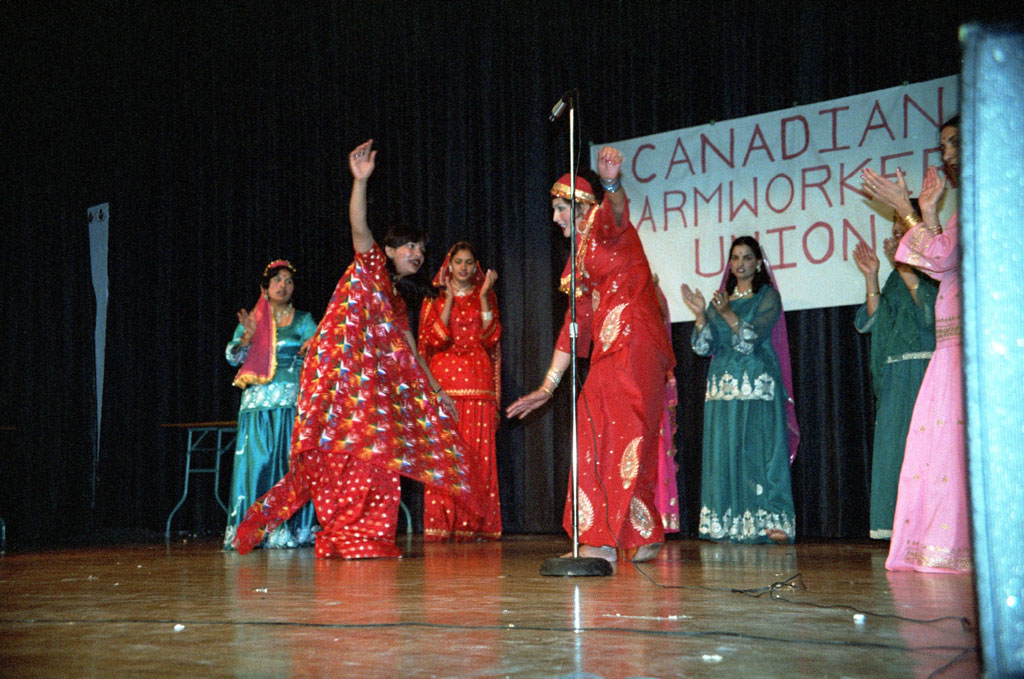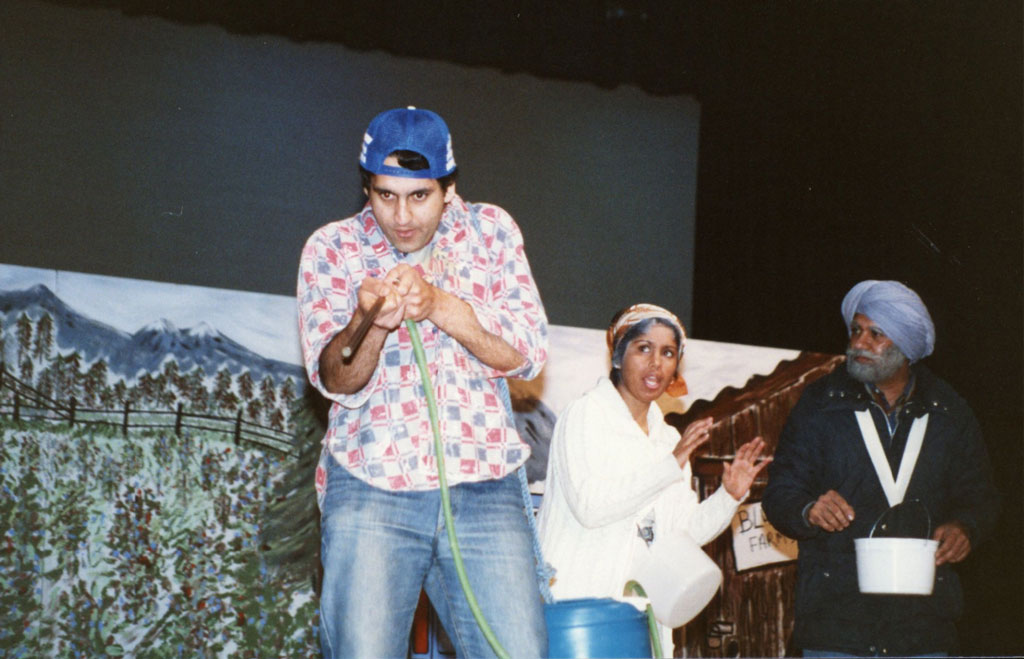
In another groundbreaking organizational strategy, the Canadian Farmworkers’ Union incorporated revolutionary artistic work by writing and staging their own plays, Bhangra dance performances, and more.
Paul Binning was an activist who helped connect arts, culture and labour activism. He was one of the first professional Bhangra dancers in BC, teaching many Canadian-born youth through his Richmond based dance troupe, the Punjab Cultural Association.
Bhangra originated as an amalgamation of folk dances from various regions in the Punjab, coming together in the revolutionary era of the 1940s and continuing to evolve in years since. Song lyrics often include themes of love, patriotism, strength and celebration during times of harvest, which resonated strongly with BC farmworkers. Many of the traditional dance moves represent farming activities: for example, the “pick and place” action of harvesting or moving crop.
The Binning family was involved with the CFU from the beginning, and it wasn’t long before Paul was in charge of organizing entertainment for the union’s frequent fundraising dinners. Despite its strong historic working-class associations, not everyone in the community appreciated Bhangra’s role as a labour organizing tool. He defended what he called “revolutionary Bhangra”:
Music and dance also bridged the gap between communities. This was often the case with the CFU, who used Bhangra performances to introduce a part of Sikh Punjabi culture to fellow trade unionists. It was at a cultural show in New Westminster hosted at one of the trade union halls that the two became really connected.
“After that, I became very, very much involved… my Bhangra, with the kids, that I was doing with the kids became their first, main entertainment, to get the people together – then they could make their speeches. A lot of people came to see us, they came to hear our dhol [drum] … there’s something that was Punjabi, something that belonged to them. They wanted to see that, feel that.”[1]
Discrimination was a frequent issue in the 1980s, and racial tensions did not go away during performances. Binning recalled an incident where his Bhangra performers faced repeated hostility from a local crowd in Fort St. James which evolved to connection and celebration once they had a chance to experience the dance.

Farmworkers tried their hand at playwriting; they performed short comedic skits at their first convention, poking fun at aggressive anti-union farm owners and exploring more serious issues such as workplace safety. The BC Federation of Labour helped to sponsor a 1985 “CFU Cultural Programme” at Yale Jr. Secondary School in Abbotsford, which featured speeches, Bhangra, and a performance of “Picket Line” alongside another play titled “Jageeru Lumber”. Sadhu Binning, brother of Paul Binning and Vancouver Sath co-founder, helped to write the play and reflected in an oral history interview:
“Back home, they [women] worked more than the men did, but that wasn’t recognized as work outside of the home. So here, they themselves didn’t have that feeling either; they just wanted to help the family, that was the initial feeling they had. But they were workers, and eventually, they realized they were workers and so they became part of the Farmworkers’ Union.” [2]
